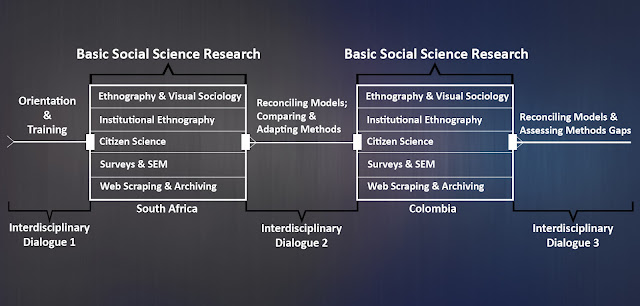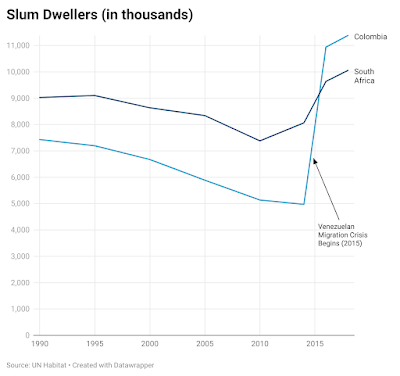2022-03-03: "What’s Missing? Innovating Interdisciplinary Methods for Hard-to-Reach Environments" funded by the Minerva Research Initiative
Truly interdisciplinary research is hard. It’s even harder when the place you’re trying to research is impossible to reach, either due to conflict or regimes that are hostile to outside researchers. In that hard-to-reach environment, we’re not only trying to bridge epistemological and methodological divides to understand “ground truth,” we also can’t do all the types of data collection and analysis we might need. For instance, it is really difficult to send qualitative sociologists and anthropologists into the field to collect data during a conflict event.
So excited to start this dream project to advance #socialscience research with an international dream team! @jojpa @MichaelaHynie @weiglemc @phonedude_mln @katapalacio Department of Defense Awards $28.7M in Grants for the FY2021 Minerva Research Initiative https://t.co/kJEPS0wpjA
— Erika Frydenlund (@ErikaFrydenlund) February 25, 2022
The Minerva Research Initiative has given researchers at Old Dominion University $1.6M over the next three years to try to understand what knowledge might be lost if certain methodological or epistemological perspectives on a hard-to-reach environment were not possible. In a unique opportunity where researchers from across four international universities will study the same site for the same research question but with different methodologies, our project, “What’s Missing? Innovating Interdisciplinary Methods for Hard-to-Reach Environments,” is centered around one question: In what ways do residents of informal settlements innovate to adapt to (im)provision of safety and security?
While informal settlements are not difficult-to-access in the same way that a conflict zone or a regime hostile to researchers might be, they do often sit outside the reach of many formal safety, security, and governance institutions and are often characterized by informal livelihoods that are not documented by traditional means.
This provides an experimental space in which we can access on-the-ground data, but these and publicly available quantitative data are not easily available. Since we can collect qualitative observations and exploit computational approaches, it is possible to figure out what insights about the same location/phenomenon of interest are missing when only conducting research from afar. In other words, we can directly compare our distanced-computational insights with the data collected inside informal settlements and identify appropriate indicators of these differently collected measures.
Five methodological teams will set out to answer the same question in the same site in Khayelitsha Site-C in Cape Town, South Africa. After the initial round and interdisciplinary discussions to establish “ground truth,” we will repeat the process for Villa Caracas in Barranquilla, Colombia. The five teams will be: Visual Sociology (ODU), Institutional Ethnography (University of Agder, Norway), Citizen Science (ODU/South Africa consultant), Survey (Universidad del Norte, Colombia), and Web and Social Media (ODU). Additionally, one team from ODU will be building a unique modeling framework to reconcile the different analyses of “ground truth.” A team at York University, Canada will study the interdisciplinary dialogue in order to take a science of science approach to advancing scientific interdisciplinary collaboration.
You will be able to follow this and related project work at Storymodelers.org (@Storymodelers on Twitter, Instagram, and Facebook).



Comments
Post a Comment